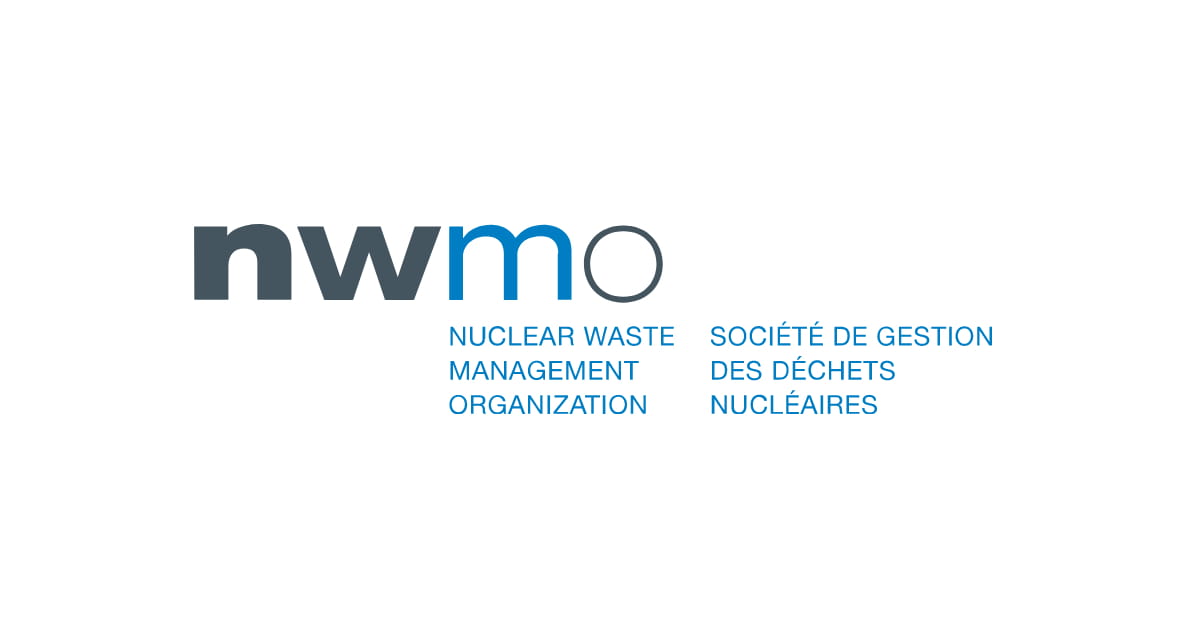The NWMO is one of the first organizations in North America to implement an Indigenous Knowledge Policy. It was developed in collaboration with the members of the Council of Elders and Youth, an advisory body that provides counsel on the application of Indigenous Knowledge in the implementation of Adaptive Phased Management (APM), Canada’s plan for the long-term management of used nuclear fuel.
“This is really significant,” said Bob Watts, Associate Vice-President of Aboriginal Relations at the NWMO. “It is the first time we have put a policy in place through ceremony. It is a living document – it has a life, and it is going to inform what we do and guide what we do. It is already doing that.”
The policy received the blessing of the Council of Elders and Youth, the same group responsible for encouraging the NWMO to create an Indigenous Knowledge Policy. Members of the Council blessed the policy document through an Indigenous ceremony. The ceremony consisted of a pipe ceremony, a smudge, a traditional drum song and dance, as well as each member personally blessing the document.
The Indigenous Knowledge Policy builds on existing positive relationships and earnest collaboration with Aboriginal peoples in Canada by providing a framework and principles to more readily apply Indigenous Knowledge, interwoven with other knowledge systems, to all aspects of our work.
“[The policy] draws on the unique and distinct strengths of our knowledge system in a manner that complements and strengthens the knowledge that is available to all Canadians,” said Joanne Barnaby, an Indigenous Knowledge advisor to the NWMO.
“There are many opportunities to learn from local Indigenous Knowledge holders as we continue fieldwork in areas engaged in the site selection process,” said Mahrez Ben Belfadhel, Director of APM Geoscience at the NWMO.
Indigenous Knowledge Policy
“This is really significant,” said Bob Watts, Associate Vice-President of Aboriginal Relations at the NWMO. “It is the first time we have put a policy in place through ceremony. It is a living document – it has a life, and it is going to inform what we do and guide what we do. It is already doing that.”
The policy received the blessing of the Council of Elders and Youth, the same group responsible for encouraging the NWMO to create an Indigenous Knowledge Policy. Members of the Council blessed the policy document through an Indigenous ceremony. The ceremony consisted of a pipe ceremony, a smudge, a traditional drum song and dance, as well as each member personally blessing the document.
The Indigenous Knowledge Policy builds on existing positive relationships and earnest collaboration with Aboriginal peoples in Canada by providing a framework and principles to more readily apply Indigenous Knowledge, interwoven with other knowledge systems, to all aspects of our work.
“[The policy] draws on the unique and distinct strengths of our knowledge system in a manner that complements and strengthens the knowledge that is available to all Canadians,” said Joanne Barnaby, an Indigenous Knowledge advisor to the NWMO.
“There are many opportunities to learn from local Indigenous Knowledge holders as we continue fieldwork in areas engaged in the site selection process,” said Mahrez Ben Belfadhel, Director of APM Geoscience at the NWMO.
Indigenous Knowledge Policy

